Calke Abbey was the location of a priory that was erected sometime around 1115. The land was passed between families after the dissolution of the monastaries and eventually has an Elizabethan house constructed on the site in 1575. This house was incorporated into a later extension of the house that was changed throughout the years. The Harpur family lived in the house from the 1620s, and the house was rebuilt in the early 1700s. The family were responsible for the items seen in the house, and these were mainly left untouched from the 1880s. The National Trust took over the property from 1985. I toured the house and some of the parkland and gardens in late May.
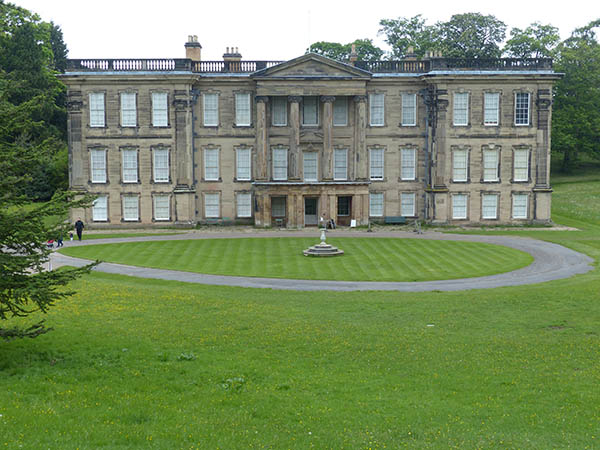
There appears to be a lot of secrets about the house; there is a tunnel under the house to a brewhouse and outbuildings, but we were limited to what we could see. This is the "lockdown edition" because some rooms and areas were shut off from the public due to social distancing measures.
Next to the house is an ancient deer park, and it is a site of special interest because of the rare wooded pasture. There are deer currently in the area, ponds, park land, and sheep pasture as well as wildflower meadows and a walled garden.
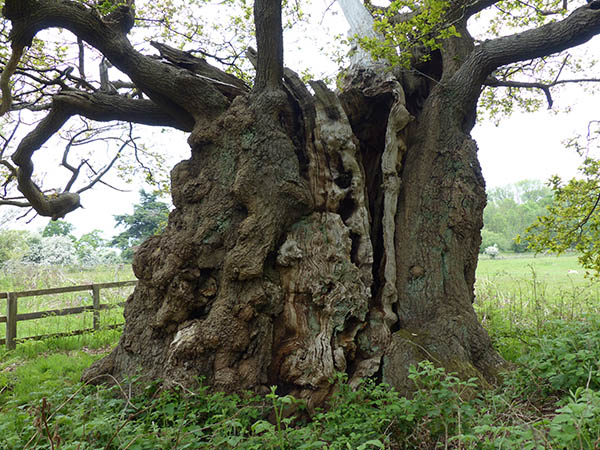
When I arrived at Calke Abbey, I walked around the pond in a circular loop walk. On this route are ancient trees; the tree is known as the "Old Man of Calke" and is 1,200 years old. It is an oak tree. There are a few ancient trees at Calke.
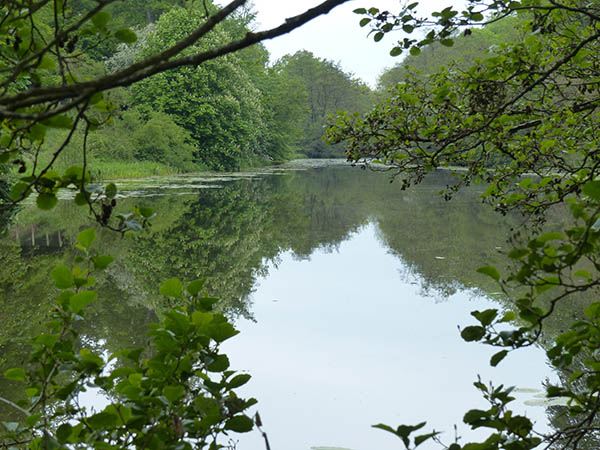
This circular walk passes through two ponds and below the deer pasture.
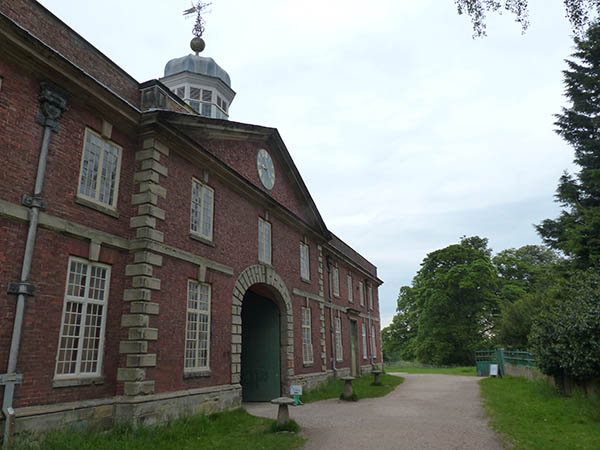
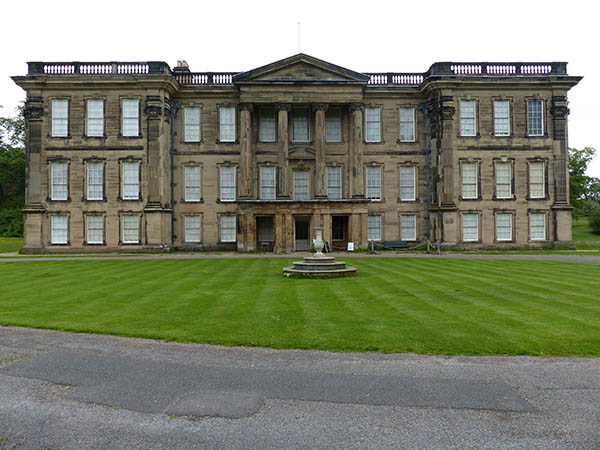
Calke Abbey's house and stables have not been completely restored. The house was left to ruin from the late 1800s until it was taken over by National Trust. Parts of the interior of the house have flaking paint and plaster or rooms filled with items that have not been sorted through and seem to tell some story. The family gained so many treasures over their time in specific items like taxidermy, insect collections, stones, bones, and fossils.
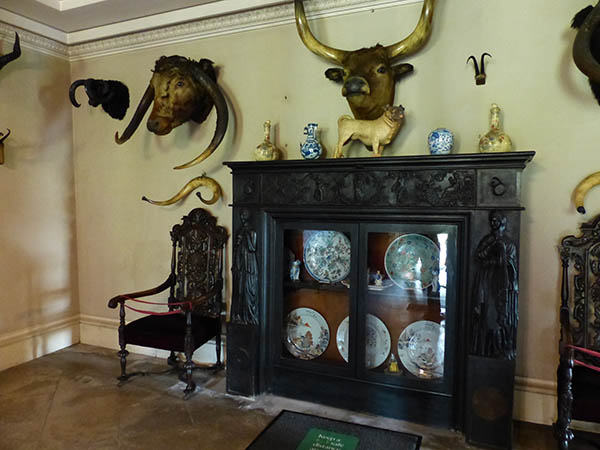
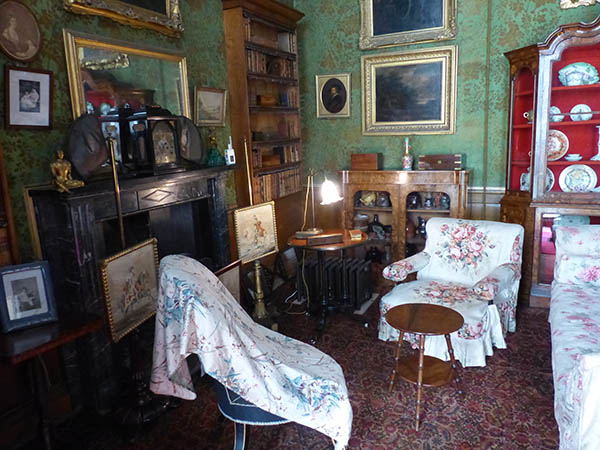
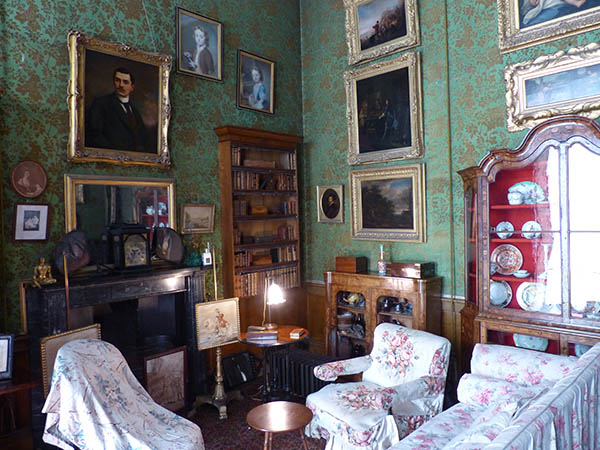
One of the treasures at the house is a state silk bed. It dates from the 18th century but was left packaged up because it did not fit the house; because it was stored away, it is in perfect condition. I could not fit the whole silk draperies in my photograph because the room is so small, but you can get an idea.
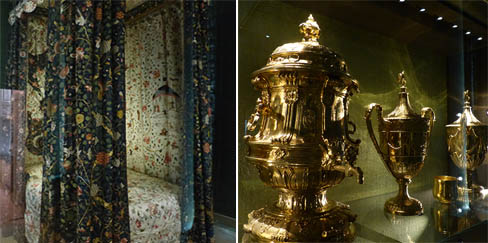
In this room were items of jewellery and racing trophies. There is so much in the house that only favourite or noted items have been put out on display.
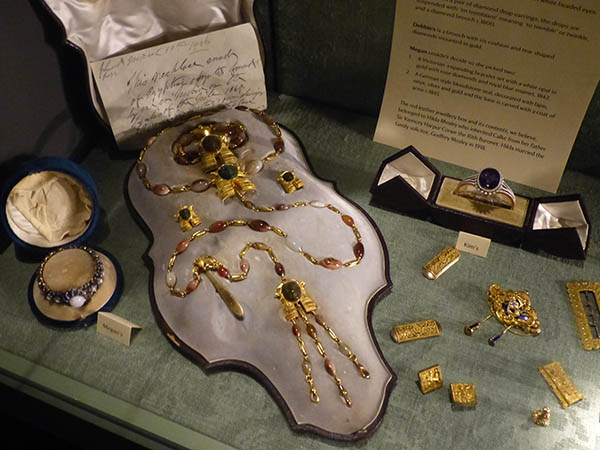
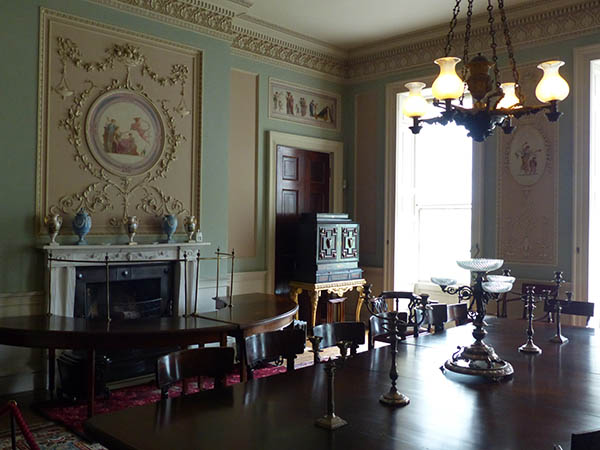
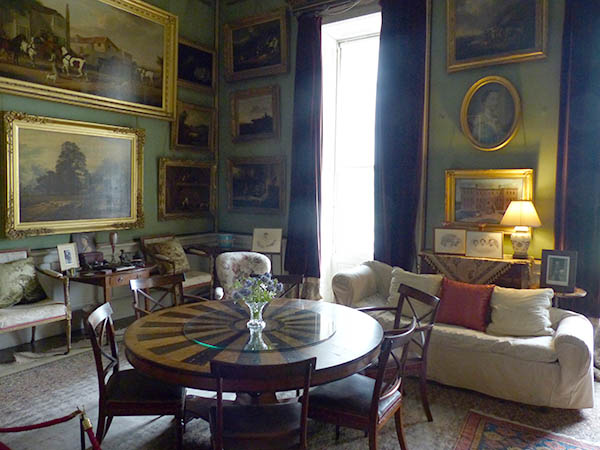
The largest room housed the fossils, taxidery, skull of a crocodile, and some items discovered from the middle ages or earlier.
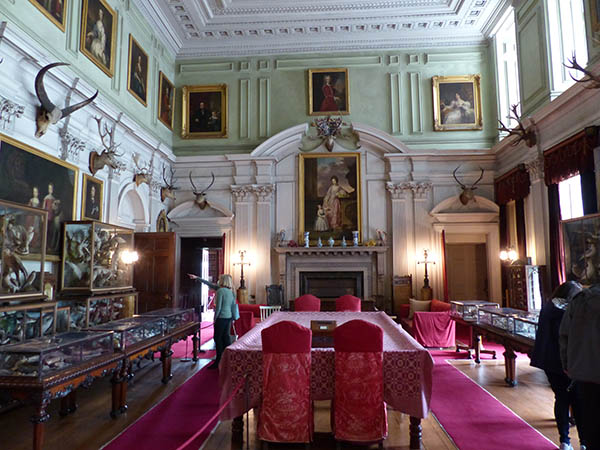
The library was one of my favourite rooms. All around the room were paintings of horses. The family, with the vast stables outside, were famous for breeding horses and racing them. All race horses are a descendant of one of the winners that the family raised. One of the last people to live in the house helped to train houses and to give training for them to help the military.
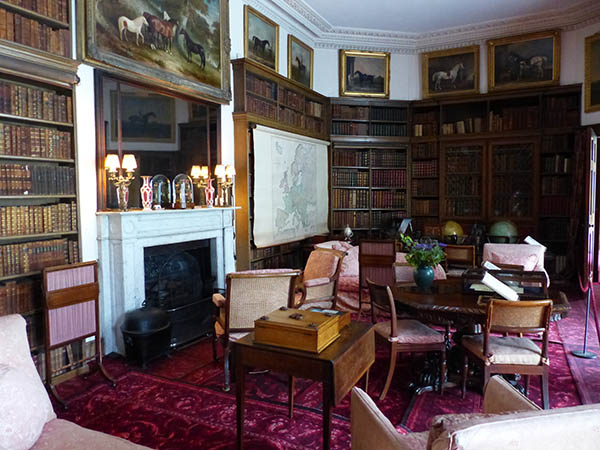
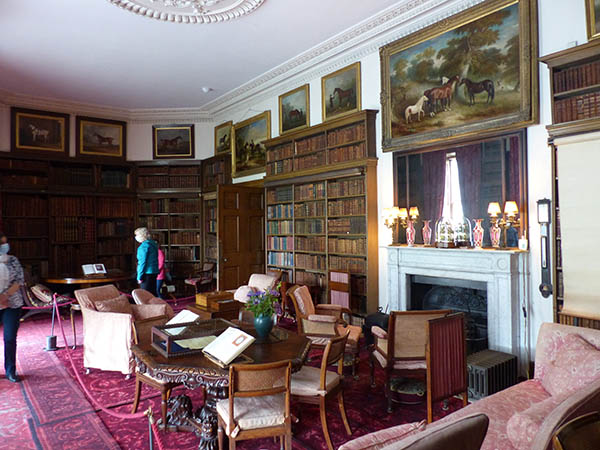
I also viewed the walled gardens on the estate, which is a short walk away from the main house.
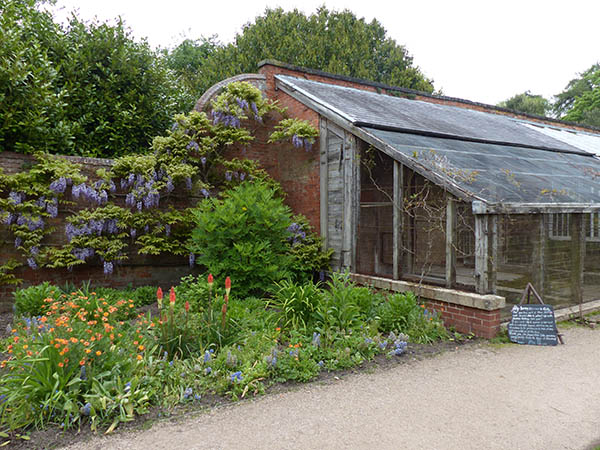
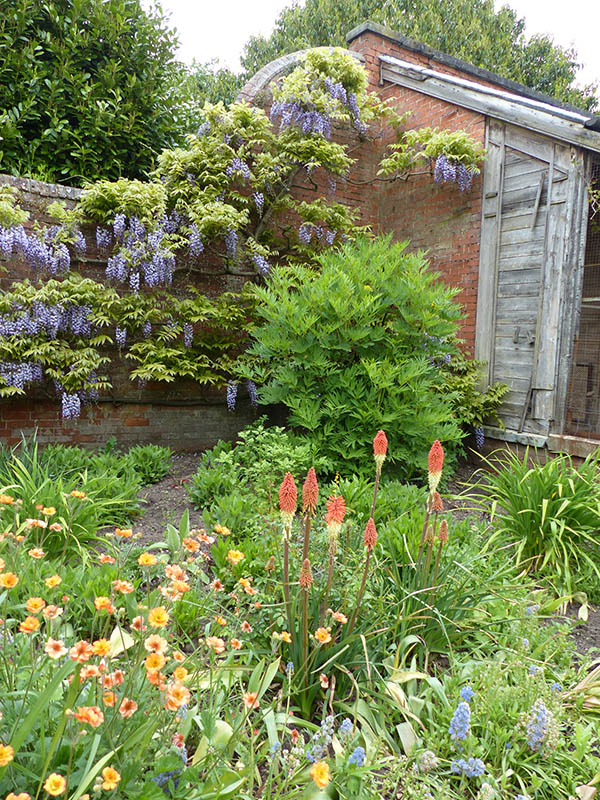
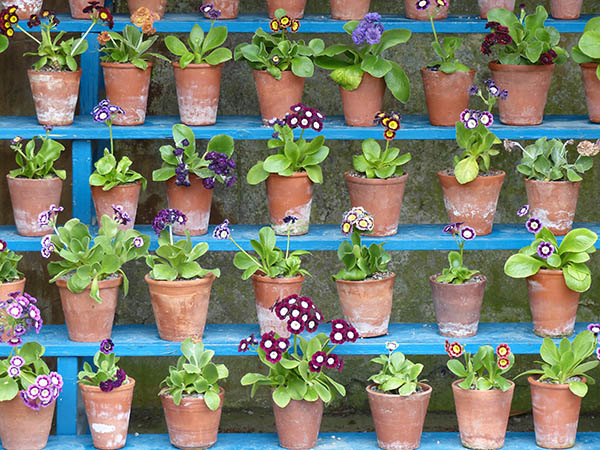
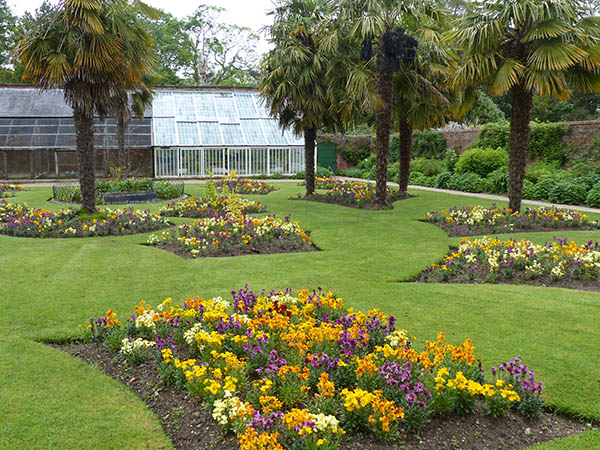
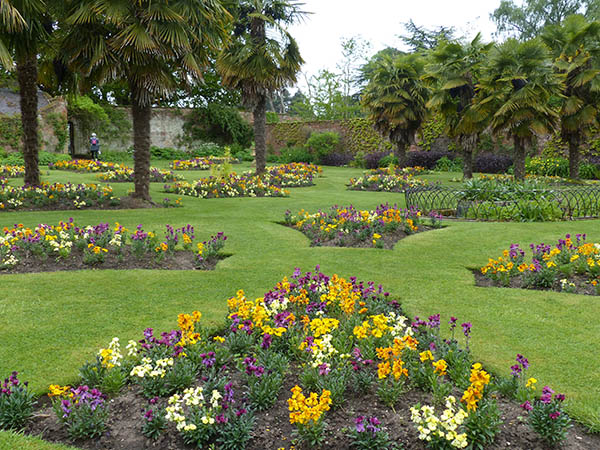
In addition to some walled gardens and kitchen gardens, there are coal sheds and stove houses. The coal pits go underneath these houses and next to the walled garden.
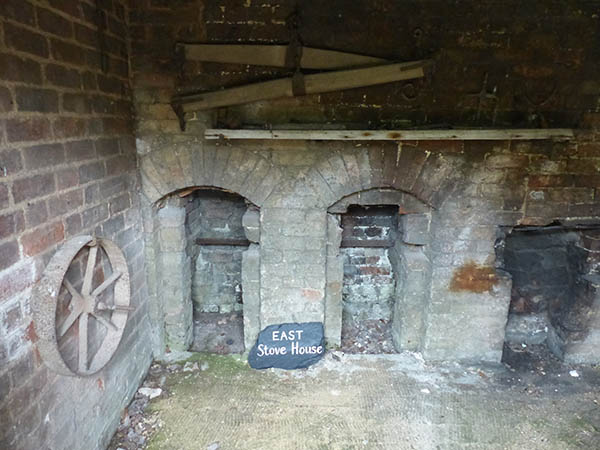
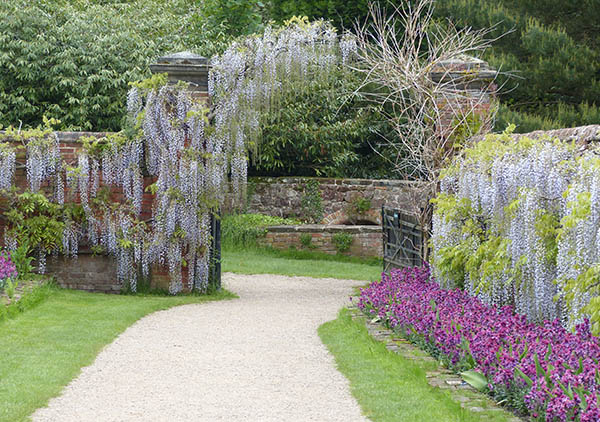
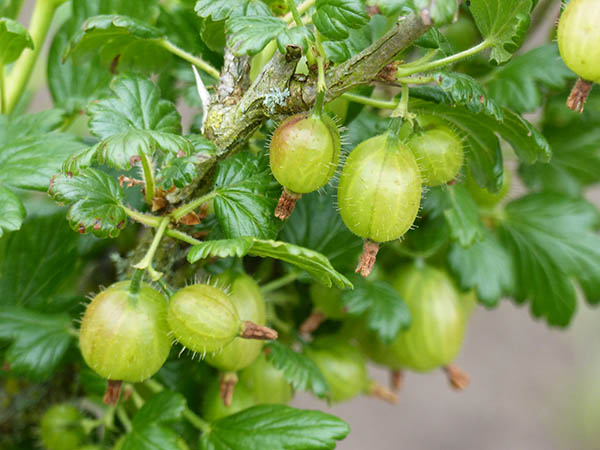
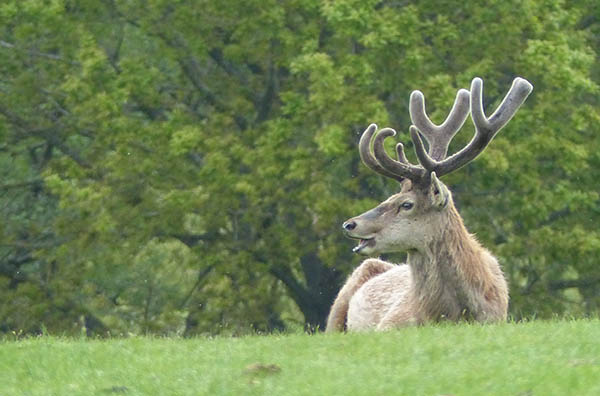
A final stop was to visit the grotto, which is carved into a field made into the hillside a short distance away from the house and in a meadow bordering the deer park.
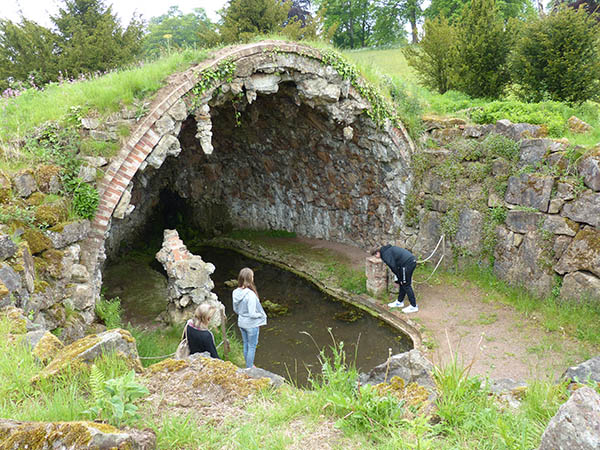
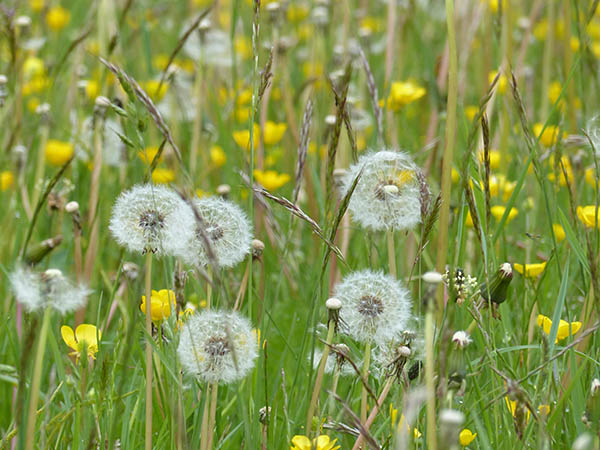
None of the stables were open, but the stabled here are vast. I am not sure how many horses they would hold, but it must be a lot.

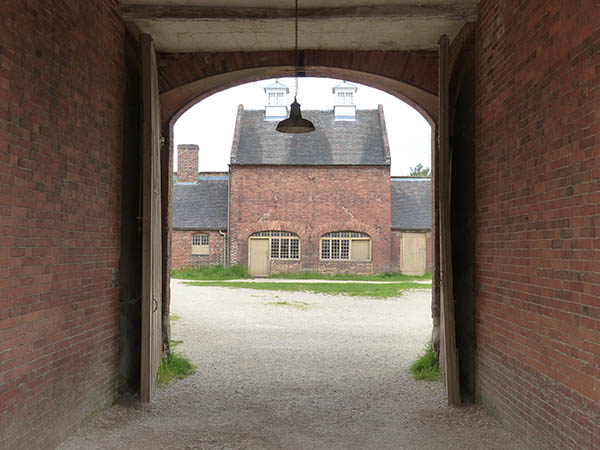
That concludes my visit of Calke Abbey. I hope to return someday in order to see the areas that I could not see due to the lockdown.
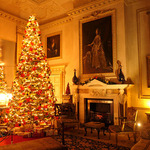
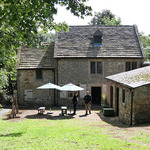
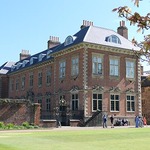
Leave a comment